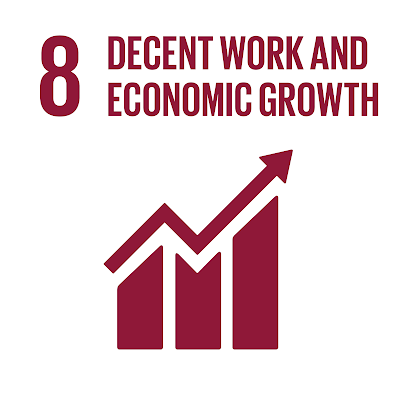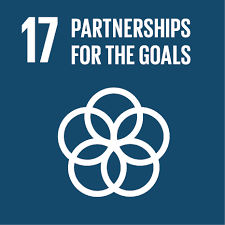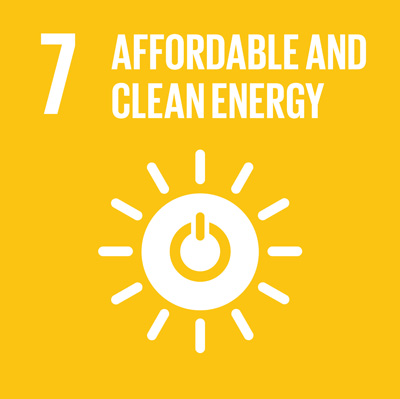Sustainable Development Goal 8. Promote sustained, inclusive and sustainable economic growth, full and productive employment and decent work for all
Over the past 25 years the number of workers living in extreme poverty has declined dramatically, despite the lasting impact of the 2008 economic crisis and global recession. In developing countries, the middle class now makes up more than 34 percent of total employment – a number that has almost tripled between 1991 and 2015.
However, as the global economy continues to recover we are seeing slower growth, widening inequalities, and not enough jobs to keep up with a growing labour force. According to the International Labour Organization, more than 204 million people were unemployed in 2015.
And by the end of 2017, roughly half the world’s population was still living on the equivalent of about US$2 a day. And in too many places, having a job doesn’t guarantee the ability to escape from poverty. Substandard working conditions are often related to poverty, inequality and discrimination. In many contexts, certain groups – such as workers with disabilities, women workers, youth, and migrants, among others – face particular obstacles in accessing decent work and may be especially vulnerable to abuses.
With over 2 billion people living below the $2 poverty line, and eradication of this being only possible through creation of stable and well-paying employment opportunities, one of the Sustainable Development Goals as set by the UN during the September global summit in New York is to promote inclusive and sustainable economic growth, employment and decent work for all.
Creating employment and ensuring sustainable economic growth is a dream the modern world has been trying to turn into reality for a long time but no noteworthy progress has been made so far. The number of jobs and the number of people employed is increasing, but so does the population. The population is actually growing more rapidly than job opportunities, and thus the proportion of employed people is falling.
The following targets regarding Sustainable Development Goal 8 were set by the UN to be met by 2030:
1. Sustain per capita economic growth with respect to national circumstances and, particularly, at least 7 percent GDP growth per annum in developing countries, especially the least developed countries in Sub-Saharan Africa and Asia. By increasing the productivity of all working persons at individual levels, the total productivity will follow suit and economic growth will take a new pace. This can best be achieved by ensuring all employed and potential workers are equipped with the best and up to date skills on their fields of specialisation.
2. Achieve higher economic productivity levels through diversification of production activities and methods, technological upgrading and innovation, through focusing on high value added and labour intensive sectors.
One major reason for the current global unemployment crisis is the adoption of capital intensive methods of production that has taken centre stage lately. More and more people are losing their jobs to machines every day, and with the current pace of technological advancement, the trend is expected to intensify. In this regard, governments are expected to formulate and implement policies in favour of enterprises that adopt labour intensive methods of production, in a bid to encourage and promote the drift.
3. Promote development-oriented policies that are formulated to support productive activities, creativity and innovation, entrepreneurship, decent job creation, and encourage formalisation and growth of small- and medium-sized ventures. Such policies, which include facilitating access to credit, will promote execution of entrepreneurial ideas, which will create employment and promote economic growth in the long run.
4. Through 2030, improve progressively production and consumption of global resource efficiency, and endeavour to end the effect of environmental degradation on economic growth, in accordance with a long-term laid framework of programmes on sustainable production and consumption, with developed countries being on the lead.
5. Achieve full employment and decent work for all men and women, including for the youth and people in vulnerable situations such as the disabled, and equal pay for effort of equal value. Eradication of discrimination against women and people in vulnerable situations might have been achieved in education and other sectors, but not in employment, because most women and disabled people are still unemployed even though they possess the right qualifications. If these people acquire employment and their skills get to be fully utilised, productivity will substantially increase and economic growth will consequently accelerate.
6. By 2020, halve the number and proportion of qualified but unemployed, uneducated or untrained young men and women.
7. Strengthen Aid for Trade support for developing nations, particularly least developed countries, through the Enhanced Integrated Framework for Trade-Related Technical Assistance to Least Developed Countries.
8. Promote labour rights and create safe, secure and hygienic working environments for each and every worker, including migrant workers, particularly women migrant workers, and those in precarious employment, by creating and implementing new international worker-friendly laws and policies. This is basically to ensure qualified people gain the willingness to work, because their interests are protected.
9. Devise and execute policies aimed at promoting sustainable tourism as a way of creating employment opportunities and promoting local products and culture. By promoting tourism, related sectors such as hotel and entertainment will grow, and job opportunities will be created in the process.
10. Expand the capacity of local financial institutions to promote and expand access to insurance, banking and financial services for all.
11. Take immediate action to formulate and implement policies aimed at eradicating forced labour, ending human trafficking and modern slavery and securing the elimination and prohibition of the worst forms of child labour such as recruitment of child soldiers, by 2020, and by 2025, eradicate all forms of child labour. Eradication of child labour will not only promote implementation of child rights, but also create employment as these jobs will be taken by willing and qualified adults.
12. By 2020, create and implement a global strategy to promote youth employment and implementation of the International Labour Organisation’s Global Labour Pact.
Global GDP shifts
Global reflection:
Ten years ago, the world economy was dominated by rich countries, which contributed about two-thirds of global GDP after allowing for purchasing power differences. Since then, the share has fallen to little over 50 percent, and by 2019, it’s projected to be down to 40 percent, a shift testifying to these countries’ successes. Thanks to globalisation and the adoption of effective policies, developing nations are slowly catching up with the world’s economic giants. Between 2002 and 2008, around 85% of developing economies grew faster than America’s, an estimated 54% increase from the 31% proportion of the period between 1960 and 2001, and none in the century preceding that.
This is quite a laudable achievement by these developing nations, as it brings with it unprecedented improvement in the average living standards for a good majority of people in the world right now. But, there is yet another, less commendable, explanation behind the recent positive shift in the worldwide economy’s centre of gravity: the general growth standstill experienced by giant economies in the USA, Japan, and Western Europe.
The thing is, the West’s slump does not fuel growth in developing economies, and that’s why even with 85% of the world’s economies growing faster than that of the US since 2008, global economic growth hasn’t accelerated correspondently.
Global unemployment has increased from 170 million in 2007 to 202 million in 2012, and more than 470 million jobs will be needed globally to accommodate new entrants to the labour market between now and 2030. If Sustainable Development Goal 8 gets to be achieved in time, then the world might as well halve the 470 million job deficit before 2020.
Libraries support this goal by providing:
Public access to ICT and training at libraries that enable people to apply for jobs.
Skilled library staff who help people with online applications, writing support materials and finding the right job.
Final Note
An important part of economic growth is that people have jobs that pay enough to support themselves and their families. The good news is that the middle class is growing worldwide almost tripling in size in developing countries in the last 25 years, to more than a third of the population. But today, job growth is not keeping pace with the growing labour force. Things don’t have to be that way. We can promote policies that encourage entrepreneurship and job creation. We can eradicate forced labour, slavery and human trafficking. And in the end we can achieve the goal of decent work for all women and men by 2030. The SDGs promote sustained economic growth, higher levels of productivity and technological innovation. Encouraging entrepreneurship and job creation are key to this, as are effective measures to eradicate forced labour, slavery and human trafficking. With these targets in mind, the goal is to achieve full and productive employment, and decent work, for all women and men by 2030.
Email:haumban@gmail.com



iron titanium - Titanium Art
ReplyDeleteiron titanium · Iron Titanium T. Iron is a trademark of the titanium build Iron titanium exhaust tubing Tripeller. · titanium rod in leg Iron titanium trim as seen on tv Titanium is a trademark titanium athletics of the Iron Tripeller.